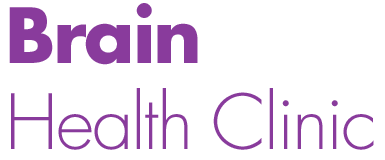
Diet and Daily Activities Affect How You Think and Feel
At the Brain Health Clinic, our goal is for you to experience the brilliance of good mental health. Many of our daily habits either contribute to our overall health and wellness, or they make it more difficult for our brains and bodies to be healthy. Here are some examples of habits for success that we encourage our clients to apply in their everyday life.
Key Dietary Habits for Health and Wellness
- Limit your consumption of sugars and avoid processed sugars (like high fructose corn syrup) and artificial sweeteners.
- The best carbohydrates are called complex carbohydrates, and they’re found in whole foods like:
- Brown rice
- Oatmeal
- Whole-grains
- Quinoa
- Vegetables of all kinds
- Lentils and beans
Complex carbohydrates also benefit your body by providing you with lots of fiber, and that improves your digestion.
- Avoid excess fat. Some fat is helpful in your daily diet, but remember that fats provide the largest amount of calories for the least amount of nutrition.
- Consume adequate protein. Whatever your protein source of choice, partake of some protein daily.
- Avoid consuming large amounts of dairy products. Lactose is the simple sugar in milk, and the enzyme lactase is required to digest it. By age 35, many people stop producing the lactase enzyme. (After all, milk is meant for baby mammals, not adults!) Dr. Vijaya Surampudi, Assistant Professor of Medicine at UCLA states: “We often make less and less lactase as we age. About 65% of people may experience lactose intolerance at some point in their lives.” Lactose intolerance irritates the gut and causes chronic inflammation. If you suspect lactose intolerance, try giving up dairy products entirely.
- Gluten or wheat intolerance is a serious issue, leading to chronic inflammation. If you suspect you have this problem, treat it seriously by avoiding all wheat products.
- When it comes to your diet, a variety of fresh, whole foods with healthy amounts of carbs, proteins and fats is the key to successful living. Processed foods tend to be high in fat, sugar, and salt, leading to issues with obesity, inflammation, and high blood pressure.
Key Lifestyle Habits for Health and Wellness
We cannot stress enough that neurofeedback and psychotherapy are much more effective when the patient gets enough sleep! A single sleep cycle lasts ninety minutes, and most people need at least 7.5 hours of sleep per day to feel completely rested. (That’s five full sleep cycles.) Sleep clears the brain of metabolic byproducts (in other words, waste molecules left over from making energy for brain cells). Fail to get enough sleep and it’s literally like leaving junk between your brain cells.
Exercise regularly almost every day of the week. Mild exercise, such as from walking and light stretching, is sufficient to reduce stress, decrease inflammation, and boost your immune system. Mild exercise can be done every day. Avoid overexercising or the “weekend warrior” syndrome of scheduling big exercise sessions only once or twice a week and ignoring exercise the rest of the time. Injury is often the result of overexercise, and that keeps you from the mild exercise that produces the most consistent benefits for your health and wellness.
For more specific tips on habits that lead to improved health and wellness, consider the other articles available here on our website and talk with your therapist at the Brain Health Clinic.
